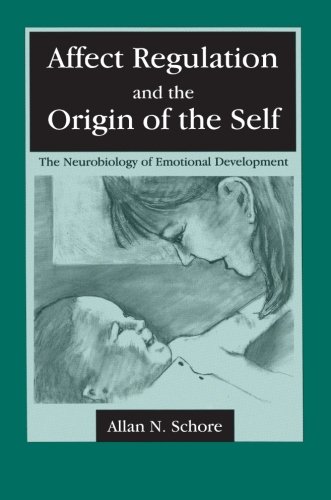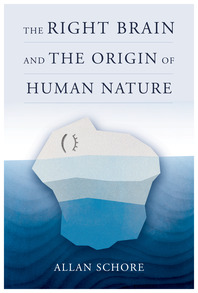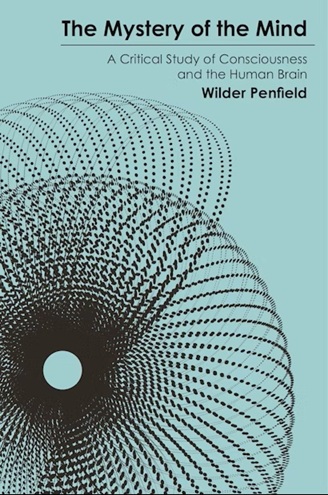Affect Regulation and the Origin of the Self: The Neurobiology of Emotional Development

Book Details
- Publisher : Lawrence Erlbaum
- Published : January 1994
- Cover : Paperback
- Pages : 736
- Category :
Neuroscience - Category 2 :
Child and Adolescent Studies - Catalogue No : 6110
- ISBN 13 : 9780805834598
- ISBN 10 : 0805834591
Also by Allan N. Schore
The Right Brain and the Origin of Human Nature
Price £39.00
The Science of the Art of Psychotherapy
Price £43.00
There are currently no reviews
Be the first to review
During the past decade a diverse group of disciplines have simultaneously intensified their attention upon the scientific study of emotion. This proliferation of research on affective phenomena has been paralleled by an acceleration of investigations of early human structural and functional development. Developmental neuroscience is now delving into the ontogeny of brain systems that evolve to support the psychobiological underpinnings of socioemotional functioning. Studies of the infant brain demonstrate that its maturation is influenced by the environment and is experience-dependent. Developmental psychological research emphasizes that the infant's expanding socioaffective functions are critically influenced by the affect-transacting experiences it has with the primary caregiver. Concurrent developmental psychoanalytic research suggests that the mother's affect regulatory functions permanently shape the emerging self's capacity for self-organization. Studies of incipient relational processes and their effects on developing structure are thus an excellent paradigm for the deeper apprehension of the organization and dynamics of affective phenomena.
This book brings together and presents the latest findings of socioemotional studies emerging from the developmental branches of various disciplines. It supplies psychological researchers and clinicians with relevant, up-to-date developmental neurobiological findings and insights, and exposes neuroscientists to recent developmental psychological and psychoanalytic studies of infants. The methodology of this theoretical research involves the integration of information that is being generated by the different fields that are studying the problem of socioaffective development - neurobiology, behavioral neurology, behavioral biology, sociobiology, social psychology, developmental psychology, developmental psychoanalysis, and infant psychiatry. A special emphasis is placed upon the application and incorporation of current developmental data from neurochemistry, neuroanatomy, neuropsychology, and neuroendocrinology into the main body of developmental theory. More than just a review of several literatures, the studies cited in this work are used as a multidisciplinary source pool of experimental data, theoretical concepts, and clinical observations that form the base and scaffolding of an overarching heuristic model of socioemotional development that is grounded in contemporary neuroscience. This psychoneurobiological model is then used to generate a number of heuristic hypotheses regarding the proximal causes of a wide array of affect-related phenomena - from the motive force that drives human attachment to the proximal causes of psychiatric disturbances and psychosomatic disorders, and indeed to the origin of the self.
Reviews and Endorsements
Contents:
J.S. Grotstein, Foreword. Preface. Part I:Background and Overview. Introduction. General Principles of Growth of the Developing Brain. Recent Advances in the Multidisciplinary Study of Emotional Development. Structure-Function Relationships of the Orbitofrontal Cortex. Overview. Part II:Early Infancy. Visual Experiences and Socioemotional Development. The Practicing Period. The Psychobiology of Affective Reunions. Early Imprinting. Imprinting Neuroendocrinology. Socioaffective Influences on Orbitofrontal Morphological Development. The Emotionally Expressive Face. The Neurochemical Circuitry of Imprinted Interactive Representations. The Regulatory Function of Early Internal Working Models. Part III:Late Infancy. The Onset of Socialization Procedures and the Emergence of Shame. Late Orbitofrontal Development. Orbitofrontal Versus Dorsolateral Prefrontal Ontogeny. The Dyadic Origin of Internal Shame Regulation. Socialization and Experience-Dependent Parcellation. The Origins of Infantile Sexuality and Psychological Gender. The Onset of Dual Component Orbitofrontal Mature Structure and Adaptive Function. Part IV:Applications to Affect Regulatory Phenomena. A Psychoneurobiological Model of the Dual Circuit Processing of Socioemotional Information. Cross-Modal Transfer and Abstract Representations. The Development of Increasingly Complex Interactive Representations. Orbitofrontal Influences on the Autonomic Nervous System. The Regulation of Infantile Rage Reactions. Affect Regulation and Early Moral Development. The Emergence of Self-Regulation. Part V:Clinical Issues. The Neurobiology of Insecure Attachments. The Clinical Psychiatry of Affect Dysregulation. The Developmental Psychopathology of Personality Disorders. Vulnerability to Psychosomatic Disease. Psychotherapy of Developmental Disorders. Part VI:Integrations. Right Hemispheric Language and Self-Regulation. The Dialogical Self and the Emergence of Consciousness. Further Directions of Multidisciplinary Study. A Proposed Rapprochement Between Psychoanalysis and Neurobiology.
About the Author(s)
Allan N. Schore, PhD, is on the clinical faculty of the Department of Psychiatry and Biobehavioral Sciences, UCLA David Geffen School of Medicine, and at the UCLA Center for Culture, Brain, and Development. He is author of three seminal volumes, Affect Regulation and the Origin of the Self, Affect Dysregulation and Disorders of the Self and Affect Regulation and the Repair of the Self, as well as numerous articles and chapters. His Regulation Theory, grounded in developmental neuroscience and developmental psychoanalysis, focuses on the origin, psychopathogenesis, and psychotherapeutic treatment of the early forming subjective implicit self. His contributions appear in multiple disciplines, including developmental neuroscience, psychiatry, psychoanalysis, developmental psychology, attachment theory, trauma studies, behavioral biology, clinical psychology, and clinical social work. His groundbreaking integration of neuroscience with attachment theory has lead to his description as ""the American Bowlby"" and with psychoanalysis as ""the world's leading expert in neuropsychoanalysis."" His books have been translated into several languages, including Italian, French, German, and Turkish.
Customer Reviews
Our customers have not yet reviewed this title. Be the first add your own review for this title.
You may also like
Childhood Disrupted: How Your Biography Becomes Your Biology, and How You Can...
Donna Jackson Nakazawa
Price £7.69
save £3.30
The Mystery of the Mind: A Critical Study of Consciousness and the Human Brain
Wilder Penfield
Price £25.00









